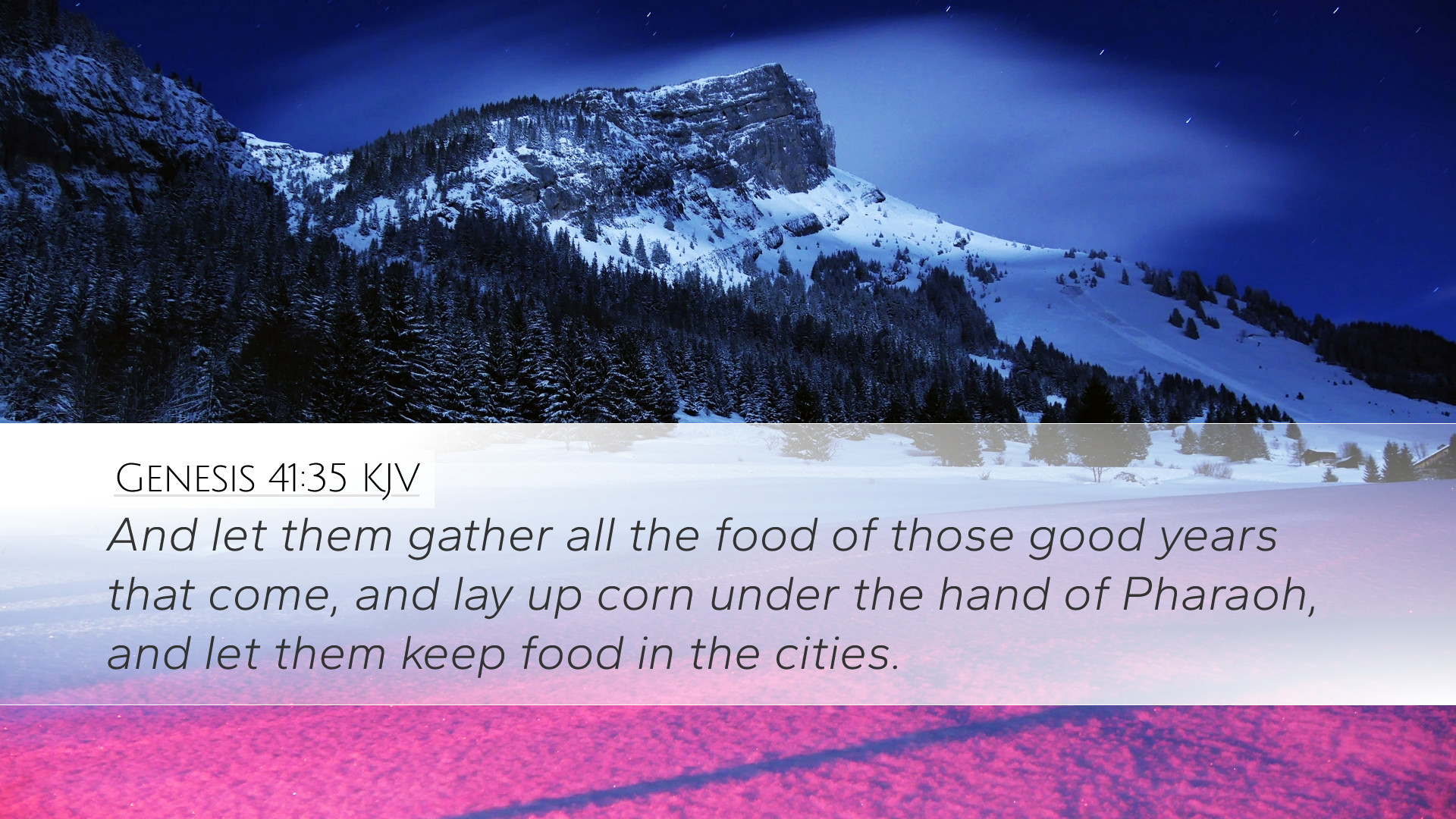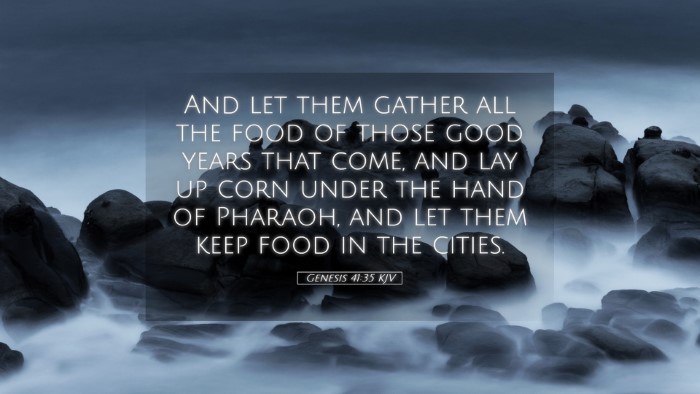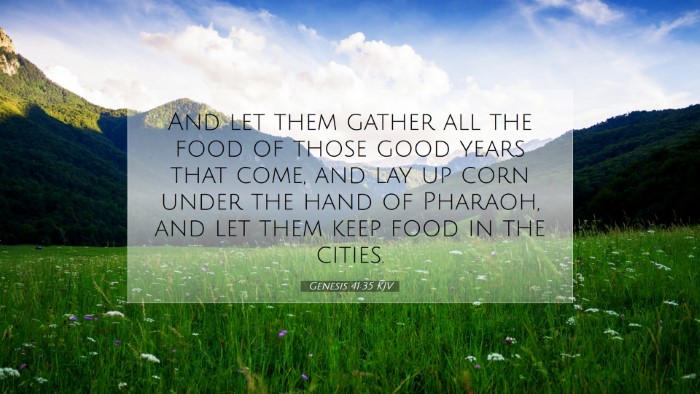Commentary on Genesis 41:35
Genesis 41:35 states, "And let them gather all the food of those good years that come, and lay up corn under the hand of Pharaoh, and let them keep food in the cities." This verse introduces the systematic approach advised by Joseph during the time of plenty in Egypt. The insights from respected commentators such as Matthew Henry, Albert Barnes, and Adam Clarke serve to illuminate the theological and practical implications of this directive.
The Context of Genesis 41
In the broader context of Genesis 41, Joseph is interpreting Pharaoh's dreams, which foretold seven years of abundance followed by seven years of famine. This prophecy emphasizes God's sovereignty and providential care over the world, particularly over His people. The action called for by Joseph represents not only a practical solution but also a divinely inspired strategy critical for the survival of Egypt and the surrounding nations.
Divine Providence and Human Responsibility
Commentators emphasize the balance of divine providence and human responsibility evident in Joseph's plan. As Matthew Henry notes, the foresight shown in gathering food is indicative of God’s providence at work through Joseph's wisdom. This historical moment reflects God's foreknowledge and care, as He provides a means of sustenance through human initiative.
- Matthew Henry: Henry articulates that the gathering of corn is an act of prudence and wisdom.
- Albert Barnes: Barnes highlights that this planning is an example of preparing for future uncertainties, showcasing human diligence.
- Adam Clarke: Clarke affirms that Joseph's advice reveals God’s ability to guide and prepare His people through adversities.
The Importance of Preparation
This verse underscores the significance of preparation in the life of a believer. Joseph's advice to Pharaoh is not merely a response to a dream but a profound lesson on being prepared for seasons of want. Albert Barnes remarks that this act serves as a prototype for future generations on managing resources wisely and emphasizes the need for practical faith.
Spiritual Preparation
In a spiritual sense, this directive also speaks to the necessity of gathering spiritual sustenance. As believers, the principle of storing up "spiritual food" becomes vital during seasons of plenty and want. Adam Clarke elaborates that the gathering of food can be likened to the believers’ need for storing up the Word of God in their hearts to endure periods of spiritual famine.
Leadership and Governance
Joseph's wisdom in governance during this critical time serves as a model of effective leadership. Commentators discuss how leaders are tasked with making difficult decisions that have far-reaching implications for their communities.
- Matthew Henry: Notes the essential role of wise counsel in leadership settings, praising Joseph's ability to steer Egypt through imminent crisis.
- Albert Barnes: Suggests that leaders must discern the needs of their people and act proactively, drawing on Joseph's integrity and foresight.
Trust in God's Timing
Additionally, this text invites reflections on trusting God's timing and orchestration of events. The timeline of abundance followed by famine illustrates the transient nature of prosperity and the absolute necessity of reliance upon God's provision. Adam Clarke indicates that God's timing should encourage believers to wait upon the Lord for guidance and sustenance.
Conclusion
Genesis 41:35 is a rich text that reveals God’s providence through human action, the importance of preparation, and the deep intertwining of spiritual and practical wisdom. The commentaries by Matthew Henry, Albert Barnes, and Adam Clarke provide a multidimensional perspective that enhances understanding for theologians, pastors, and students alike.
In applying these insights, we are reminded of our call to be wise stewards of God’s blessings, prepared for future challenges, and reliant on His providence. The wisdom displayed by Joseph serves as an enduring message for all who seek to navigate the complexities of life under God's sovereignty.


